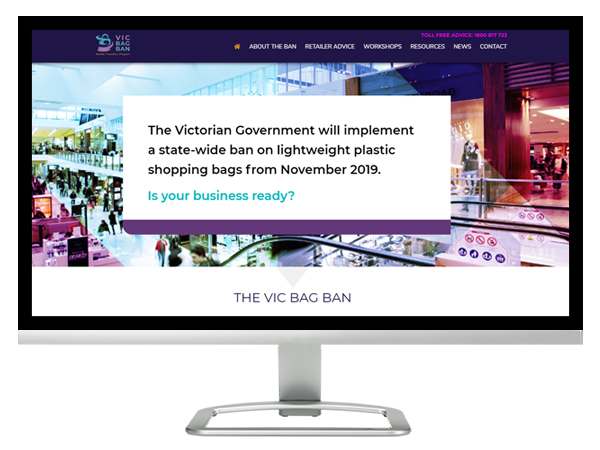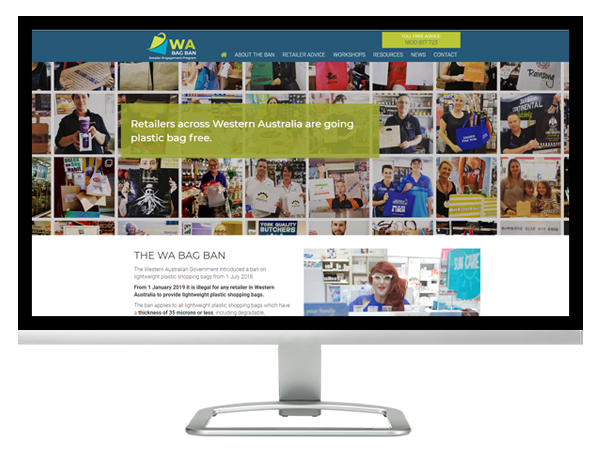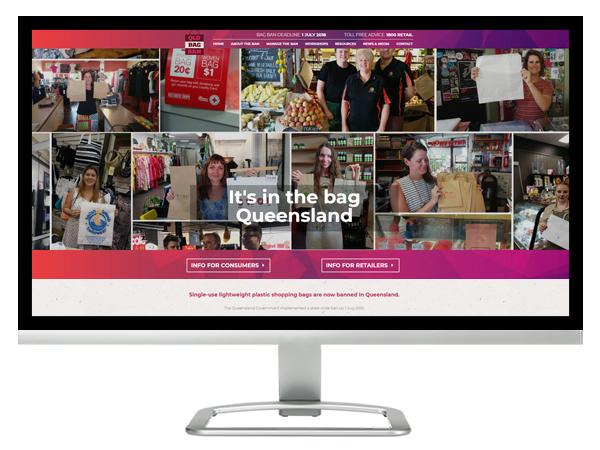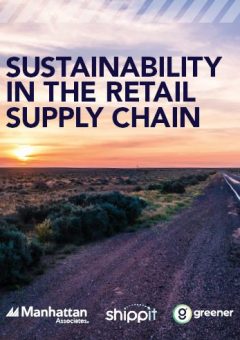Latest Sustainability News
Retailers across Australia have phased out lightweight plastic shopping bags, supported by consistent bans across states and territories.
The NRA calls on government to support industry-led programs, such as the National Shopping Bag Pact, which set world-leading standards and a consistent but ambitious plan for sustainable action on shopping bags.
-
Lightweight plastic shopping bags
Retailers across Australia have phased out lightweight plastic shopping bags, supported by consistent bans across states and territories.
There is overwhelming evidence that the modern consumer increasingly understands the impact of lightweight plastic bags on the environment. The timing for lightweight plastic bag bans compliments action which moves towards reducing the environmental damage caused by the widespread availability and use/misuse of such bags. For many years, many retailers have been proactive in this area, providing consumers with access to alternatives and in-store recycling common across many brands and categories.
As of 1 June 2022, all states and territories have banned lightweight plastic shopping bags with handles which are 35 microns or less in thickness.
Since 2017, the National Retail Association partnered with state governments to deliver our Business Engagement Programs which provide education, engagement and resources for businesses to manage their transition.
- NSW (from June 2022)
- VIC (from Nov 2019)
- WA (from Jan 2019)* – see new ban details below
- QLD (from July 2018)
- TAS (from Nov 2013)
- ACT (from Nov 2011)
- NT (from Nov 2011)
- SA (from May 2009)
To help retailers who operate across multiple states, the NRA created a website which summarises all bag ban legislation in Australia.
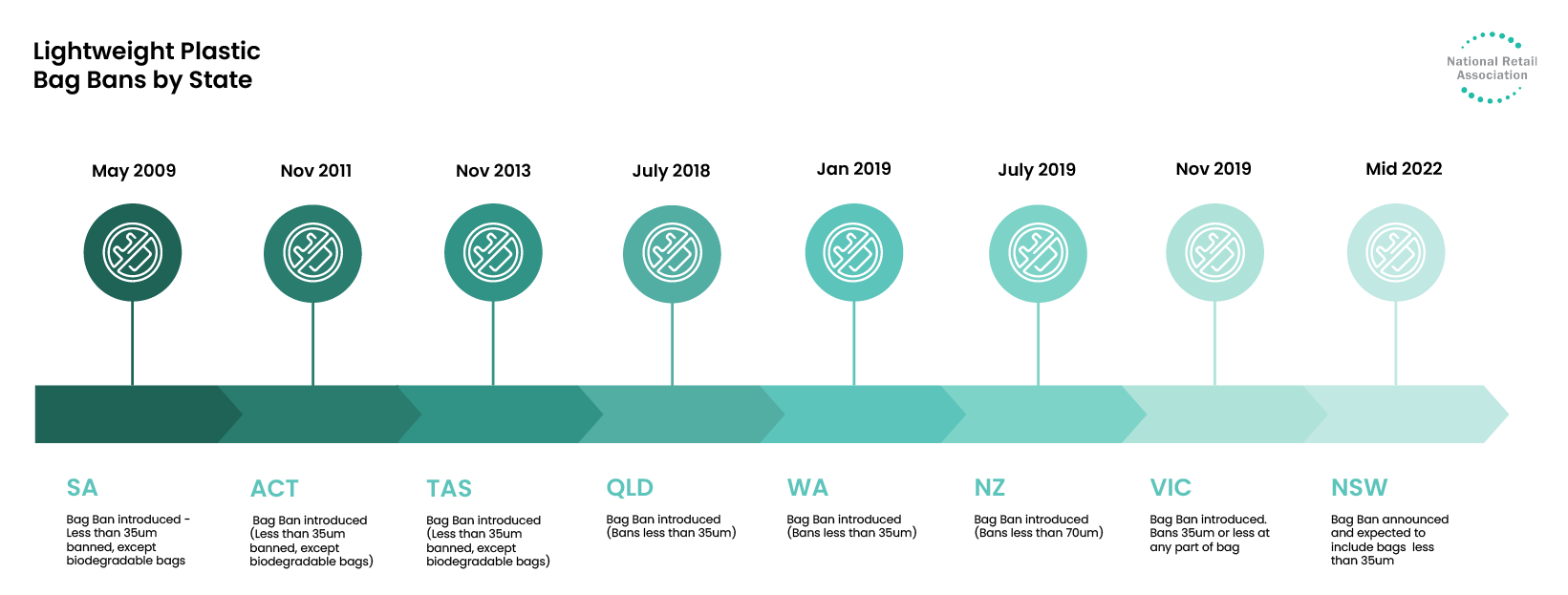
-
Reusable plastic shopping bags
In 2020, the NRA developed the National Shopping Bag Pact with Australia’s peak environmental government taskforce (Environment Ministers Meeting) to provide a consistent but ambitious plan for sustainable action on shopping bags.
The Pact sets high standards for reusable plastic bags (including minimum recycled content, minimum thickness and bag fees) as well as standards for paper and fabric bags to ensure environmental improvements, rather than just increasing carbon impact or deforestation by using more virgin resources.
The Pact was reviewed by APCO, all states and territories, and the federal government. It is yet to be released by government.
Differences in local regulation
* WA is banning all plastic shopping bags with handles from 1 July 2022. This replaces the previous WA ban and no plastic shopping bags will be allowed, regardless of thickness or recycled content. The ban includes polymer-coated paper bags.
GO TO WA PLASTICS BAN WEBSITE -
Differences in local regulation
* WA is banning all plastic shopping bags with handles from 1 July 2022. This replaces the previous WA ban and no plastic shopping bags will be allowed, regardless of thickness or recycled content. The ban includes polymer-coated paper bags.
GO TO WA PLASTICS BAN WEBSITE
Lightweight plastic shopping bags
Retailers across Australia have phased out lightweight plastic shopping bags, supported by consistent bans across states and territories.
There is overwhelming evidence that the modern consumer increasingly understands the impact of lightweight plastic bags on the environment. The timing for lightweight plastic bag bans compliments action which moves towards reducing the environmental damage caused by the widespread availability and use/misuse of such bags. For many years, many retailers have been proactive in this area, providing consumers with access to alternatives and in-store recycling common across many brands and categories.
As of 1 June 2022, all states and territories have banned lightweight plastic shopping bags with handles which are 35 microns or less in thickness.
Since 2017, the National Retail Association partnered with state governments to deliver our Business Engagement Programs which provide education, engagement and resources for businesses to manage their transition.
- NSW (from June 2022)
- VIC (from Nov 2019)
- WA (from Jan 2019)* – see new ban details below
- QLD (from July 2018)
- TAS (from Nov 2013)
- ACT (from Nov 2011)
- NT (from Nov 2011)
- SA (from May 2009)
To help retailers who operate across multiple states, the NRA created a website which summarises all bag ban legislation in Australia.

Reusable plastic shopping bags
In 2020, the NRA developed the National Shopping Bag Pact with Australia’s peak environmental government taskforce (Environment Ministers Meeting) to provide a consistent but ambitious plan for sustainable action on shopping bags.
The Pact sets high standards for reusable plastic bags (including minimum recycled content, minimum thickness and bag fees) as well as standards for paper and fabric bags to ensure environmental improvements, rather than just increasing carbon impact or deforestation by using more virgin resources.
The Pact was reviewed by APCO, all states and territories, and the federal government. It is yet to be released by government.
Differences in local regulation
* WA is banning all plastic shopping bags with handles from 1 July 2022. This replaces the previous WA ban and no plastic shopping bags will be allowed, regardless of thickness or recycled content. The ban includes polymer-coated paper bags.
GO TO WA PLASTICS BAN WEBSITEWhat we do
The National Retail Association Policy Team exists to help retail businesses succeed and grow within an ever-changing regulatory environment.
Our team works with a wide range of industry stakeholders – retailers, government, law enforcement, regulatory bodies, shopping centres, community groups, supporting associations and many more – to develop industry-wide policy platforms or positions on issues of importance to the Australian retail sector.
We work with all retailers across the retail and foodservice industry – regardless of size, category or business model – from the largest department chains to family-run pizza shops. Similar issues affect all retailers every day – such as retail crime, product safety and environmental legislation – and we all benefit from sharing intelligence and real-world experience.
We work actively with governments at international, federal, state and local levels to ensure the interests and needs of the Australian retail and services sectors are protected and promoted. Rather than running from inevitable regulatory change, we provide a bridge between retailers and government – facilitating the exchange of ideas and information which ultimately leads to more informed, commercially-aware outcomes for all parties.
We place real-world insight above all else, so we actively engage with retailers in stores, strip precincts and shopping centres.
We tackle the issues you can’t tackle alone.

